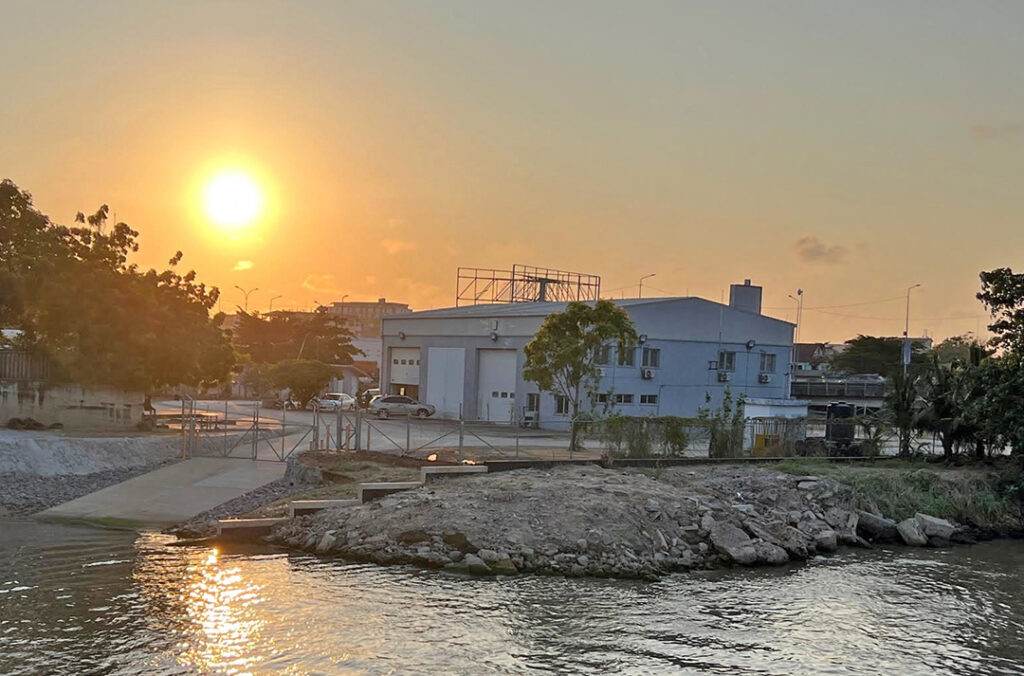ADF STAFF
To help Benin combat piracy and other maritime crimes in the Gulf of Guinea, the U.S. government delivered a new patrol vessel to the country in December. The U.S. also helped build a new boathouse, maintenance shop and launch ramp to accommodate the vessel.
Training was provided to the Beninese Special River and Maritime Police Unit, or USPFM, through U.S. Africa Command, or AFRICOM.
“The Gulf of Guinea has some of the highest incidents of maritime piracy in the world and prior to receiving the vessel and other aspects of the program, the maritime police had little capacity to patrol or interdict,” Deputy Political-Military Affairs Officer Matthew Briggs from the U.S. Embassy in Benin, said in a news release.
Officials delivered the boathouse and maintenance facility before the COVID-19 pandemic and the USPFM has used the facilities to support its regular operations and maintenance needs. The new concrete launch replaces a simple gravel ramp that could not support the new vessel.
“These are really nice, modern facilities that we provided for launching and maintaining vessels,” U.S. Army Corps of Engineers, Europe District Project Engineer Chris De Pooter said in the release. “I think they will provide great benefits for the community as a whole. It’s a really good project and I’m proud we could be a part of it.”
Although the region is considered a hot spot for piracy, the number of incidents has declined recently. Of the 90 global piracy and armed robbery incidents reported between January and September 2022, 13 were reported in the Gulf of Guinea, compared with 27 in the same period in 2021, according to the Geneva Centre for Security Policy.
The Gulf of Guinea is also considered a global hot spot for illegal, unreported and unregulated fishing, which robs West Africa of an estimated $2.3 billion to $9.4 billion annually, decimates fish stocks and destroys ecosystems.
Benin’s government recently has collaborated with other nations and worked to increase the transparency of its fishing fleet.
In 2021, Benin signed a pact with Ghana and Togo to work together to reduce illegal fishing.
The European Union’s Improved Regional Fisheries Governance in Western Africa program funded the tri-national pact. Besides at-sea patrols, the countries share information from the Regional Monitoring, Control and Surveillance Centre in Ghana.
Some Beninese fishermen report that fish stocks seem to be recovering slowly, although many still struggle to make a living.
In 2022, Benin became the first African nation to make its fishing fleet’s movements publicly visible through a deal with Global Fishing Watch (GFW). Under the agreement, Benin’s boats are tracked by a vessel monitoring system and the country shares its data with GFW, which presents it on its online map.
Benin’s government is “committed to eradicating illegal fishing from our waters and taking all action necessary to secure sustainable fisheries,” Benin Minister for Agriculture, Livestock and Fisheries Gaston Cossi Dossouhoui told SeafoodSource.

